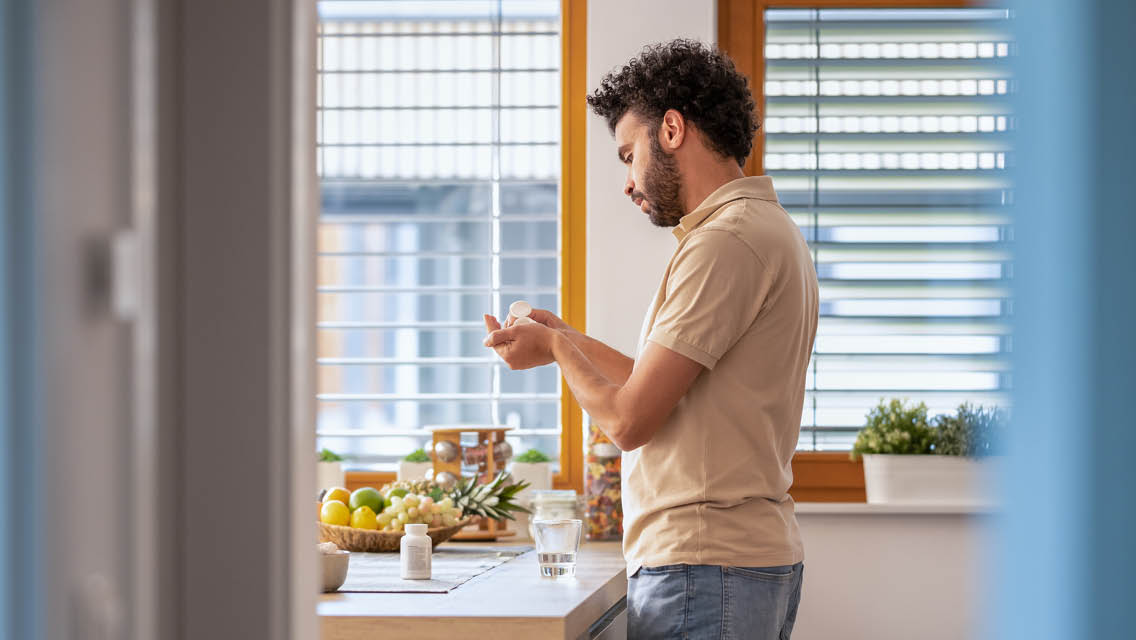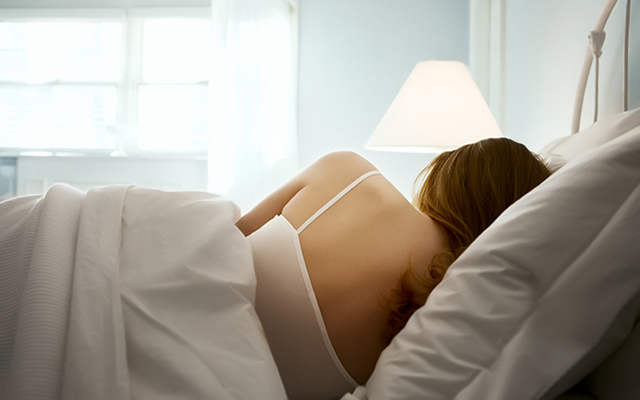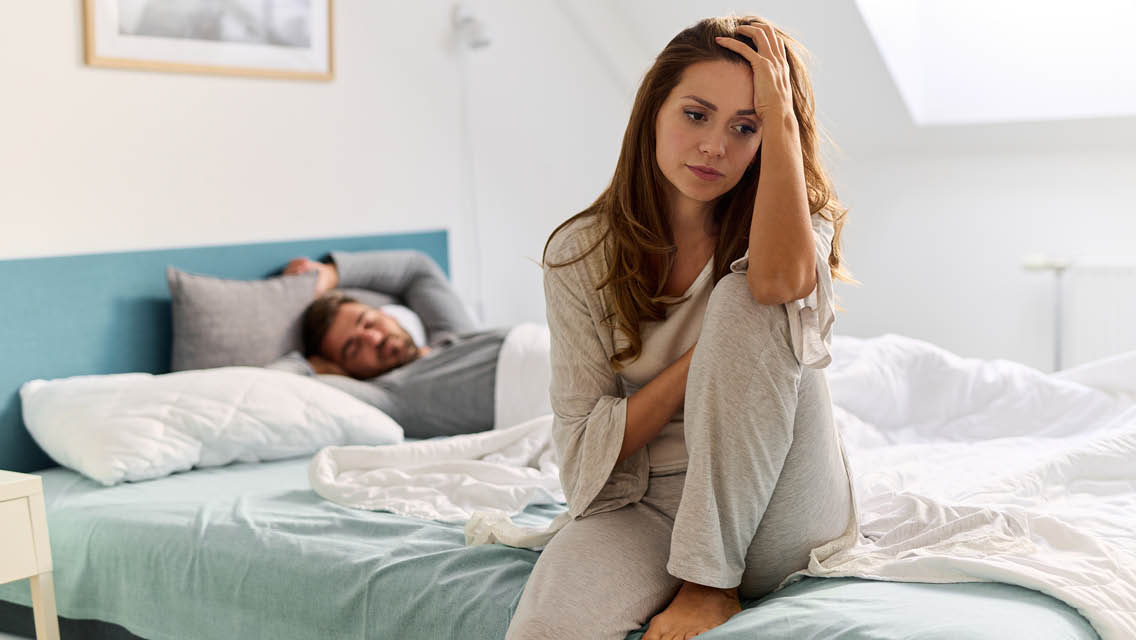Dehydroepiandrosterone (DHEA) is a hormone made by the adrenal gland. It helps produce other hormones, such as testosterone and estrogen, and it counteracts the stressful effects of cortisol. “DHEA is the antiaging hormone,” says integrative and functional nutritionist Cindi Lockhart, RDN, LD, IFNCP. Levels peak around age 25 and then start to naturally decline.
Prolonged stress can lead to “adrenal fatigue,” or dysfunction of the hypothalamic-pituitary-adrenal axis, which dysregulates the body’s production of cortisol.
“When women are super stressed, they’ll have high cortisol, and maybe an upregulation of DHEA to help them meet the demands of the stress,” explains naturopathic physician and licensed acupuncturist Laurie Steelsmith, ND, MS, LAc, coauthor of Great Sex, Naturally. “But then they can develop exhausted adrenal glands, which will then result in low DHEA.” (For more on adrenal health, see “Reset Your Stress Response.”)
What does this mean for libido? Testosterone stimulates the libido in both men and women. Because DHEA is a precursor to testosterone, low levels can lead to lower “T” and suppressed sexual appetite.
How to Supplement With DHEA:
Various tests can gauge DHEA levels in urine, saliva, and blood. Standard ranges vary by age and sex, so consult with a healthcare practitioner to interpret results. Low levels can be supplemented with pills, sublingual tablets or liquids, or topical preparations — though because of the potential for side effects and medication interactions, it’s important to take DHEA supplements only after a discussion with a knowledgeable healthcare provider.
Steelsmith advises against self-medicating with DHEA because it’s so potent: “I’ve seen women taking way too much DHEA as an over-the-counter pill and suffering side effects like acne.”
DHEA is also a precursor to estrogen, so taking too much can be a risk factor for hormone-related conditions and cancers, Lockhart adds. She recommends working with a trained practitioner and testing levels every three months for anyone supplementing with DHEA.
For her low-libido patients, Steelsmith suggests DHEA creams, which can be applied directly to the vulva and vagina. “It helps with the integrity of that tissue when hormone levels are waning [in perimenopause and menopause] and women are starting to experience more vaginal dryness, thinning, and atrophy,” she notes. There are also some topical DHEA creams for men that can be applied on thin-skinned parts of the body.
For oral doses, Lockhart recommends starting low — about 5 mg per day for women and 10 for men — and increasing as necessary. “This is a short-term product,” she adds. “You wouldn’t want to take DHEA [in the] long term.”
This was excerpted from “How to Use Nutrition to Improve Your Libido” which was published in Experience Life.





This Post Has 0 Comments